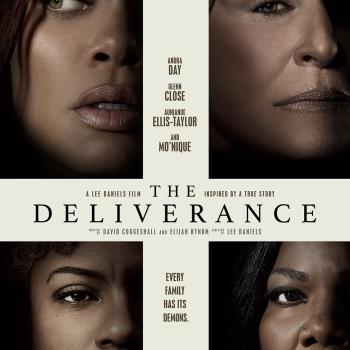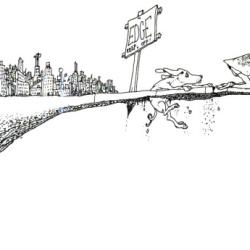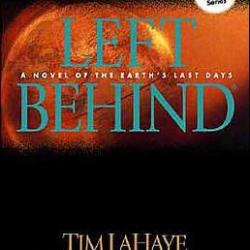I wouldn't want to have to write a story set in 2037.
That's 28 years from now — 28 years that will certainly bring about massive changes I couldn't hope to predict. Just look back 28 years. There was still a Soviet Union, an Eastern Bloc and a Cold War, but no cell phones, no World Wide Web and no rocket packs.
Well, OK, we still don't have rocket packs, which is inexcusable. We were promised rocket packs, dammit. But that just goes to show how hard it can be to speculate accurately about what the future might hold even in the relatively short term of 28 years from now.
We can make some educated guesses, though. It's a safe bet that the industries currently undergoing convulsive changes won't exist in their current form in 2037. My job — converting the content from the print edition and posting it to the newspaper's Web site — won't likely still exist 10 years from now, let alone 28. Newspapers are today still a big part of the fabric of American life, but who knows what their replacement will look like nearly three decades from now?
We could say the same thing about the automobile industry, broadcast television, the recording industry, American-style health-care delivery, secondary education, Mainline Protestantism or the Republican Party. Most of those will need to adapt dramatically in ways they've scarcely even begun to contemplate. None of them is just going to wither away, but they'll all, like newspapers, be replaced by Something Else over the course of the next 28 years. What those Something Elses will be — what they will look like, how they will work, how they will feel as part of our daily existence — strains my ability to imagine.
So, again, I wouldn't want to have to write a story set in 2037.
If I'm still around in 2037, I'll be 69 years old — probably looking forward to retiring with the Slacktivixen to a cozy little beach house near the boardwalk in Vineland, N.J. (I'm not optimistic about our ability to act quickly enough to prevent the worst-case scenario for climate change.) The richest person in the world will be the woman who invented that indispensable Thing we'll all be carrying/wearing/riding — that Thing we won't be able to imagine living without. That Thing will be what we all use to heckle late-night comedians telling hackneyed jokes about President Frances Bean's mother, or to watch 360-degree, 3-D, HD replays of the Cubs' epic World-Series collapse against Havana. It'll be the Thing I use to make tired "in my day …" jokes to my 40-something daughters about how it used to be illegal to use electronic devices while driving and now it's illegal to drive without them. "Of course," I'll add, "the word 'drive' meant something very different back then." Then I'll go back to posting on what I'll still anachronistically call a "blog," continuing a page-by-page discussion of Book 6: Assassins even as cyborg-LaJenkins announces the publication of Feed 52 in the series, all the while still insisting that the Rapture is, at most, just a few short months away.
But really the only thing I'm confident of in that whole paragraph is that there will be a baseball team in Havana. Who knows about the rest of it?
We do know, for certain, that 2037 is 28 years from now, and that little bit of arithmetical obviousness allows us to extrapolate a few other certainties. We know, for instance, that all still-living children born in 2007 will be turning 30 in 2037. This marks excellent timing on their behalf — as the largest-ever pool of American workers will be entering their peak earning years, infusing a wave of cash into the Social Security system just as the trust fund representing decades of overpayments by Baby Boomers is finally depleted.
This last point is something the trustees of the Social Security Administration still don't quite seem to understand, and something that Stephen Ohlemacher of the Associated Press doesn't seem to think is even possible. The trustees thus continue issuing their annual reports about the dire prospects of the program three or four decades hence, and they always seem to base this assessment on several assumptions that seem dubious at best: 1) Baby boomers will live forever; 2) there will never again be an American work force as large as there was at the height of the Baby Boom; and 3) the American economy in 2037 will look and function just the way it does today, consisting of the same activities conducted the same way in roughly the same proportion.
I wouldn't want to have to write a story set in 2037. But I'm pretty sure I could do a better job of it than the trustees of the Social Security Administration have done.















